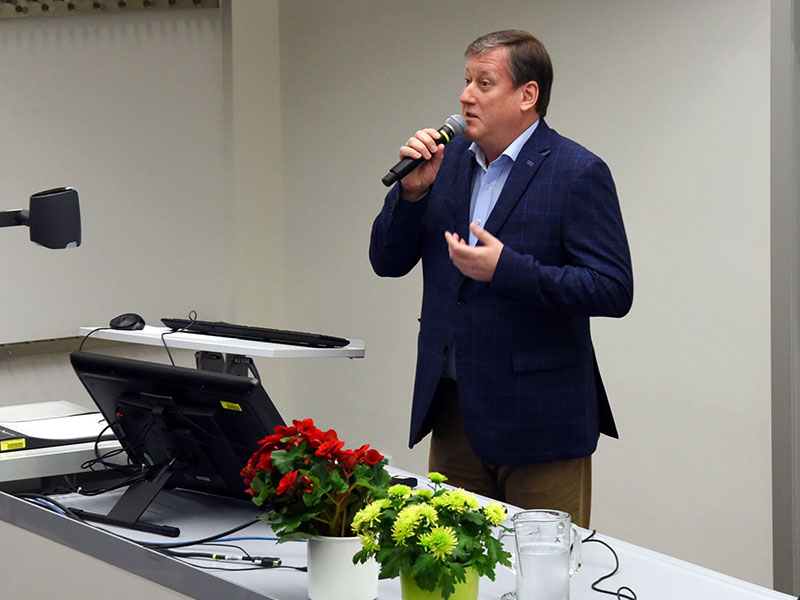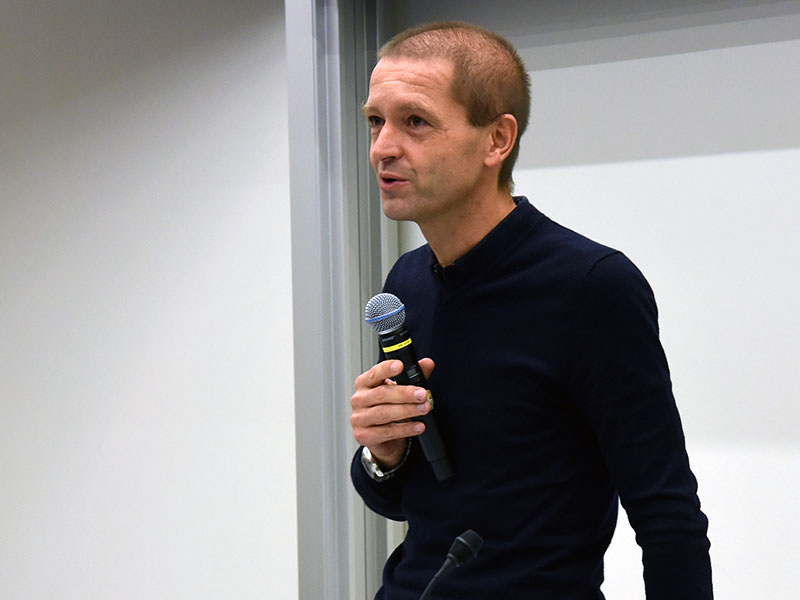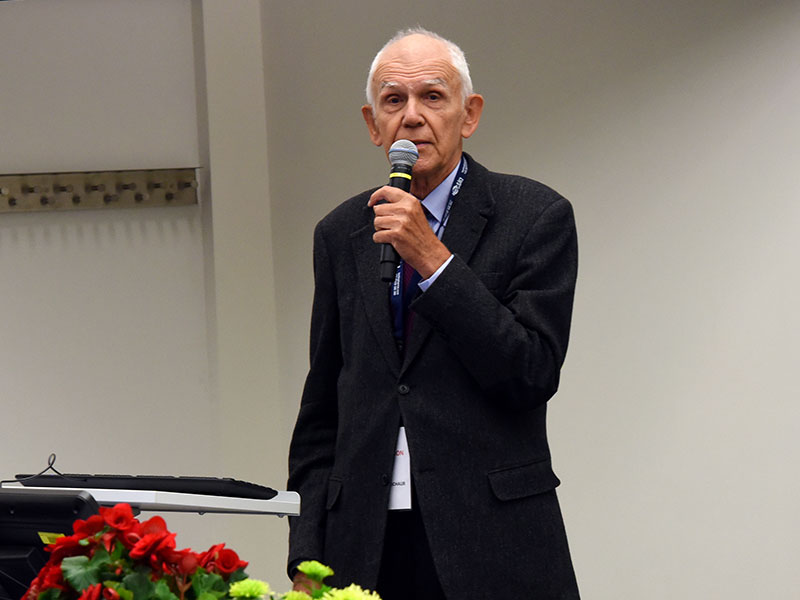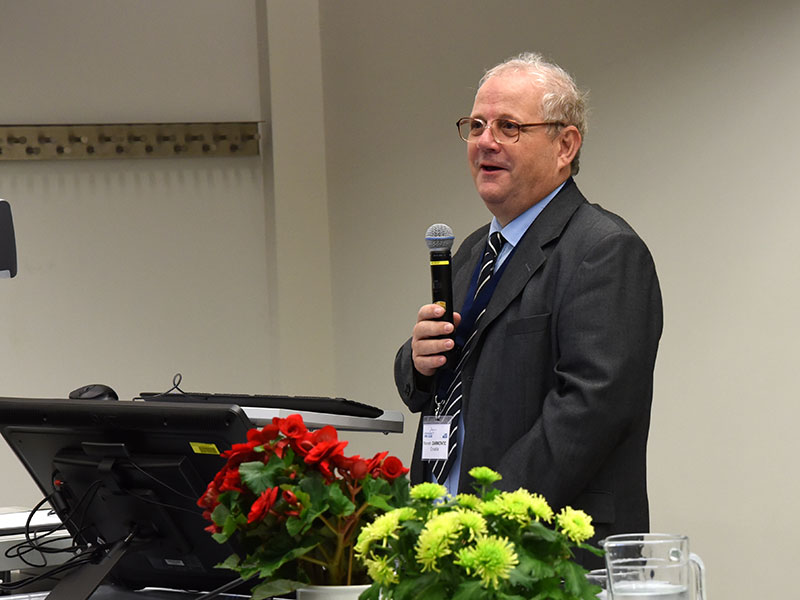Prof. Hermann Esterbauer (1936-1997), der ab 1990 das Institut für Biochemie an der Universität Graz leitete, leistete Bedeutendes in der Erforschung des menschlichen Stoffwechsels und der Alterungsvorgänge. Unter anderem gelang ihm die Charakterisierung von 4-Hydroxynonenal (HNE), einem Stoff, der bei der Lipidperoxidation – dem Ranzigwerden von Fetten – entsteht und als wichtiger Wegbereiter für Krankheiten wie Krebs, Alzheimer und Arteriosklerose angesehen wird.
Sauerstoffradikale und Lipidperoxidation
In memoriam Hermann Esterbauer veranstaltet der internationale HNE-Club alle zwei Jahre ein Symposium zu einem Thema im Zusammenhang mit Lipidoxidation und deren Bedeutung in der biologischen und biomedizinischen Forschung. Die diesjährige Konferenz, die von 14. bis 15. September an der Uni Graz stattfindet, widmet sich aktuellen Forschungen zur Bedeutung von Sauerstoffradikalen und Lipidperoxidation für die menschliche Gesundheit und die Entstehung von Krankheiten.
Dekan Christof Gattringer begrüßte die TeilnehmerInnen an der Karl-Franzens-Universität Graz und unterstrich: „Die Naturwissenschaftliche Fakultät der Uni Graz ist stolz auf die herausragenden Leistungen der Forschung ihrer Life Sciences, und das Symposium trägt weiter zur Erhöhung der internationalen Sichtbarkeit bei.“
Die Organisation vor Ort leitet Univ.-Prof. Dr. Valery Bochkov (Uni Graz), unterstützt von Assoz. Prof. Dr Winklhofer-Roob (Uni Graz), Ao.Univ.-Prof. i.R. Dr. Rudolf Jörg Schaur (Uni Graz), Priv.-Doz. Dr. Willibald Wonisch (Med Uni Graz), Univ.-Prof. i.R. Dr. Gholam Ali Khoschsorur (Med Uni Graz) und Univ.-Prof. Dr. Rudolf Zechner (Uni Graz)
>> mehr Informationen
Von Labormodellen bis zu klinischen Studien
Im Anschluss an die Tagung lädt das Human Nutrition & Metabolism Research and Training Center Graz (HNMRC) unter der Leitung von Univ.-Prof. Dr. Brigitte Winklhofer-Roob am Samstag, den 16. September 2017, zu seinem seinem 6. Internationalen Symposium, das vom HNMRC der Uni Graz gemeinsam mit der Klinischen Abteilung für Nephrologie der Med Uni Graz organisiert wird.
Die Beiträge beleuchten das breite Spektrum von Labormodellen, Kohorten-Studien und Challenge Tests für klinische Interventionsstudien. International renommierte Vortragende präsentieren aktuelle Erkenntnisse und schlagen eine Brücke von der Grundlagenforschung hin zur Patientenversorgung – eine Vision, die bereits Hermann Esterbauer hatte, dem auch dieses Symposium gewidmet ist.
Workshop: Publizieren in einem Fachjournal – Infos und Tipps aus erster Hand
Eine einmalige Chance speziell für junge WissenschafterInnen bietet der Workshop „How to publish in a scientific Journal“, der am Samstagvormittag im Rahmen des HNMRC-Symposiums angeboten wird. Der Herausgeber von Elsevier und Chefredakteure hochrangiger Journale geben bei der Veranstaltung Informationen und Tipps zum erfolgreichen Publizieren, einer wesentlichen Voraussetzungen für eine wissenschaftliche Karriere. Die TeilnehmerInnen haben auch Gelegenheit, Fragen zu stellen.
Zeit: Samstag, 16. September 2017, 8 bis 10 Uhr
Ort: Karl-Franzens-Universität Graz, Schubertstrasse 1 bzw. Universitätsplatz 1, Hörsaal 03.01
Der Workshop ist für Studierende und MitarbeiterInnen der Grazer Universitäten kostenlos!
>> nähere Informationen zum Programm




